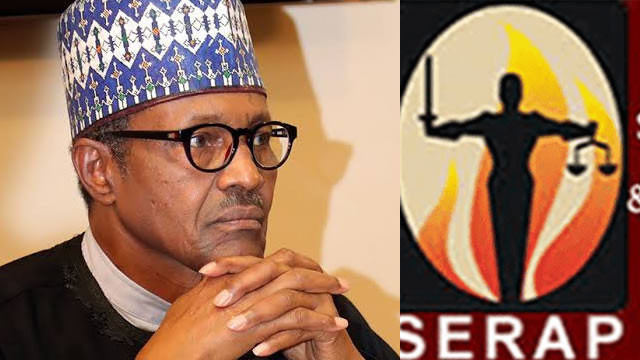Abiodun OBA
The country’s public debt is observed to have mushroomed with no end in sight.
Socio-Economic Rights and Accountability Project (SERAP), made the observation in an open letter dated 18 September 2021, and signed by SERAP deputy director Kolawole Oluwadare, the organization expressed “concerns about the growing debt crisis to the leadership of the national assembly.
SERAP added that the growing national debt is clearly not sustainable.
The organisation therefore, called on the Senate President Dr Ahmad Lawan, and Speaker of House of Representatives Mr Femi Gbajabiamila, to reject the fresh request by President Muhammadu Buhari to borrow $4 billion and €710 million.
SERAP, believes Nigeria’s debt crisis is getting out of control, with N11.679 trillion committed into debt servicing between 2015 and 2020, while only N8.31 trillion was expended on capital projects.×
The organisation urged the two NASS leaders to request for details of spending of all loans obtained since May 29, 2015 by the government, before acting on the new request.
President Buhari recently sought the approval of the National Assembly to borrow $4,054,476,863 billion and €710 million, on the grounds of “emerging needs.”
The request was contained in a letter dated 24 August, 2021.
SERAP expressed concern over the lack of transparency and accountability in the spending of loans that have been obtained.
It also expressed worry on the perceived unwillingness or inability of the National Assembly to vigorously exercise its constitutional duties to check the apparently indiscriminate borrowing by the government.”
“The National Assembly should not allow the government to accumulate unsustainable levels of debt, and use the country’s scarce resources for staggering and crippling debt service payments rather than for improved access of poor and vulnerable Nigerians to basic public services and human rights.”
“Accumulation of excessive debts and unsustainable debt-servicing are inconsistent with the government’s international obligations to use the country’s maximum available resources to achieve progressively the realisation of economic and social rights, and access of Nigerians to basic public services,” SERAP said.
The letter, read in part: “The country’s public debt has mushroomed with no end in sight. The growing national debt is clearly not sustainable. There has been no serious attempt by the government to cut the cost of governance. The leadership of the National Assembly ought to stand up for Nigerians by asserting the body’s constitutional powers to ensure limits on national debt and deficits.”
“SERAP urges you to urgently propose a resolution and push for constitutional amendment on debt limit, with the intent of reducing national debt and deficits. This recommendation is entirely consistent with the constitutional oversight functions and spending powers of the National Assembly, and the country’s international anti-corruption and human rights obligations.”
“Indiscriminate borrowing has an effect on the full enjoyment of Nigerians’ economic and social rights. Spending large portion of the country’s yearly budget to service debts has limited the ability of the government to ensure access of poor and vulnerable Nigerians to minimal health care, education, clean water, and other human needs.”
“Should the National Assembly and its leadership fail to rein in government borrowing, and to ensure transparency and accountability in the spending of public loans, SERAP would consider appropriate legal action to compel the National Assembly to discharge its constitutional duties.”
“SERAP notes that if approved, the country’s debts will exceed N35 trillion. The government is also reportedly pushing the maturity of currently-secured loans to between 10 and 30 years. N11.679 trillion is reportedly committed into debt servicing, while only N8.31 trillion was expended on capital/development expenditure between 2015 and 2020.”
“Ensuring transparency and accountability in the spending of loans by the government and cutting the cost of governance would address the onerous debt servicing, and improve the ability of the government to meet the country’s international obligations to use maximum available resources to ensure the enjoyment of basic economic and social rights, such as quality healthcare and education.”
The letter was copied to chairmen of the Public Accounts Committees of the National Assembly.








Comments